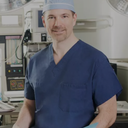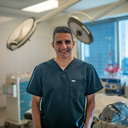Three options exist for surgery. Smaller procedures can actually be done in the office with light oral sedation. Adolescents frequently do better with a light general #anaesthetic.Twilight or IV sedation are another great choice. All procedures are outpatient either in the office or a certified outpatients surgery facility.





